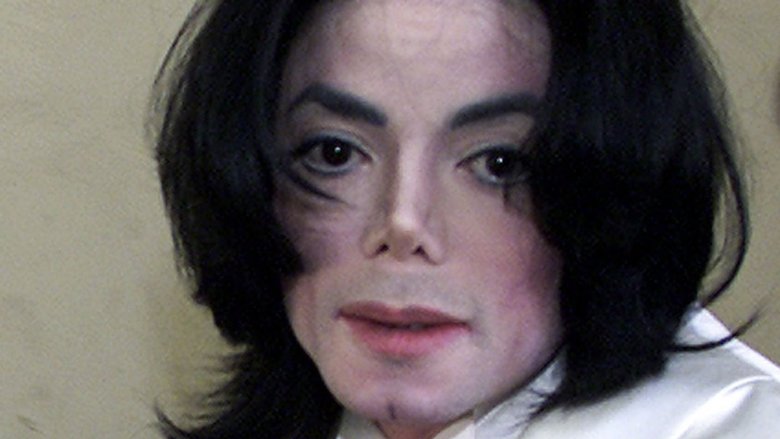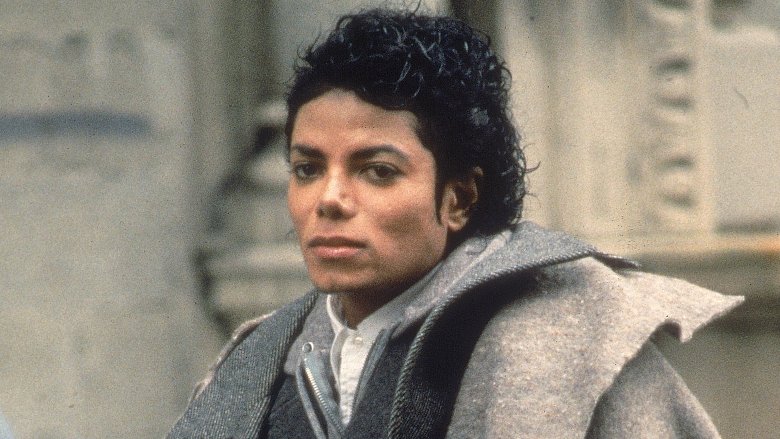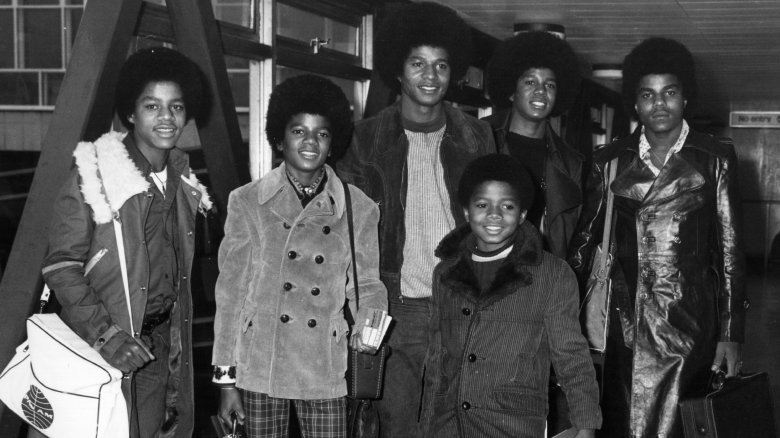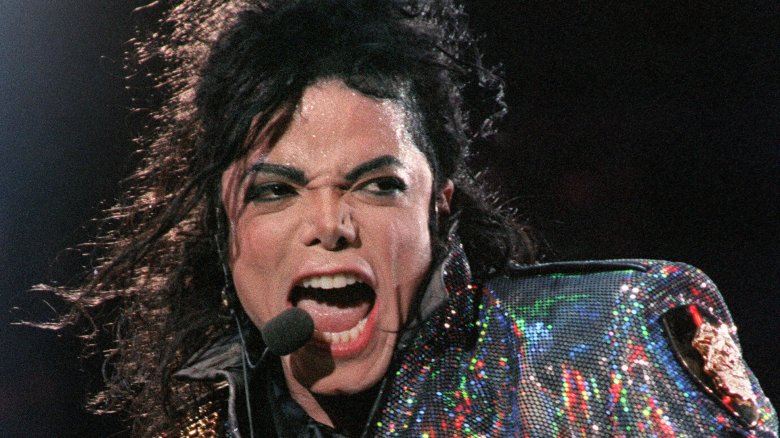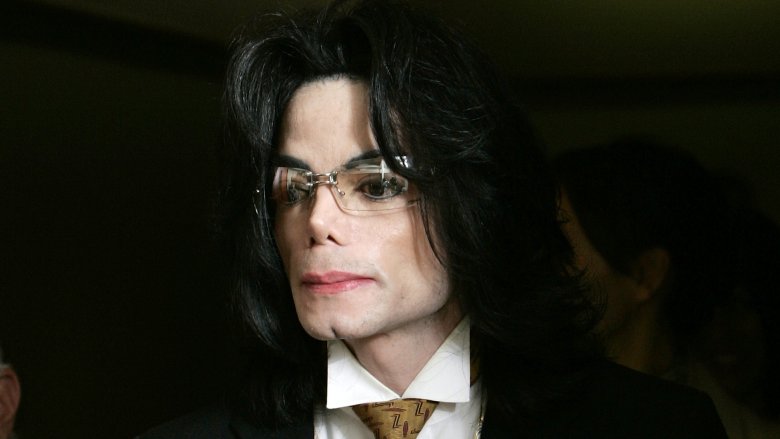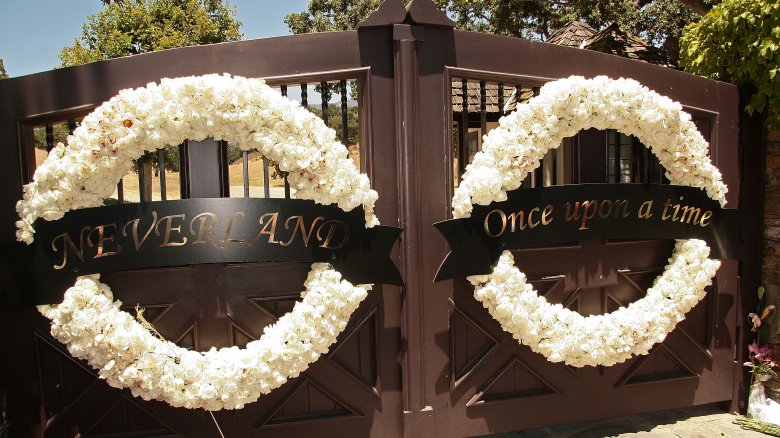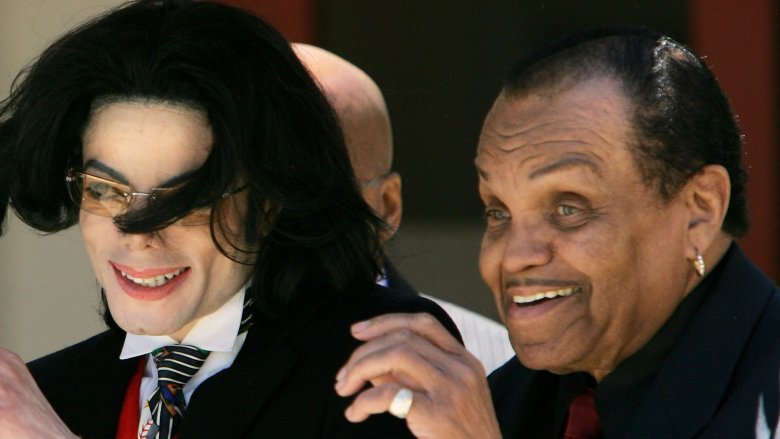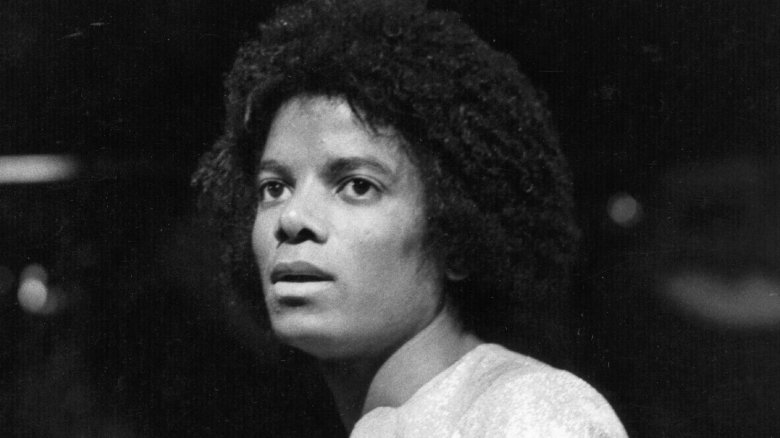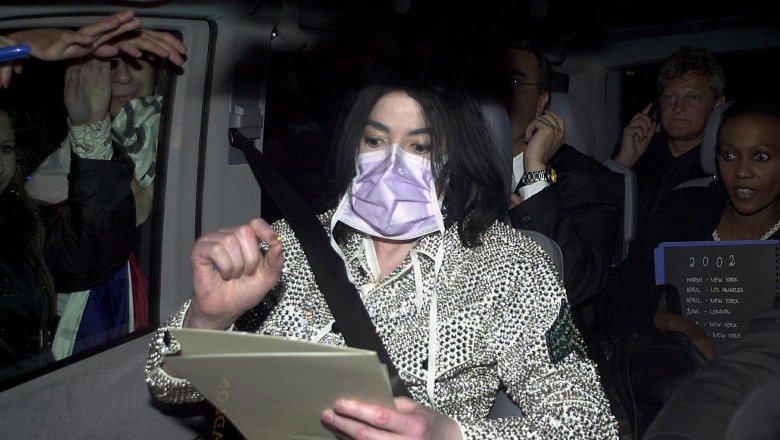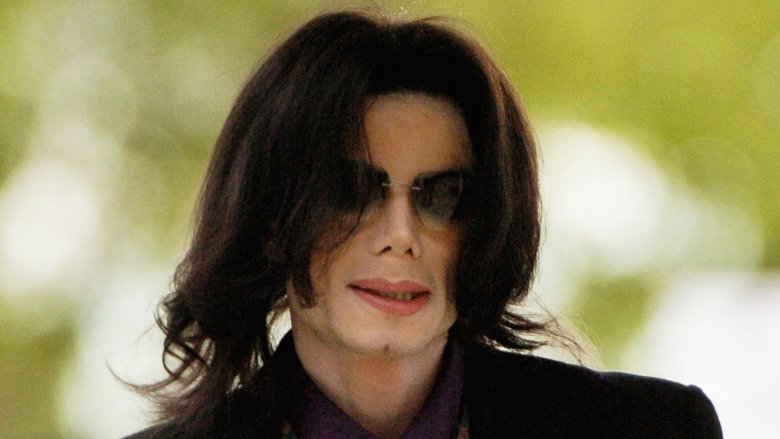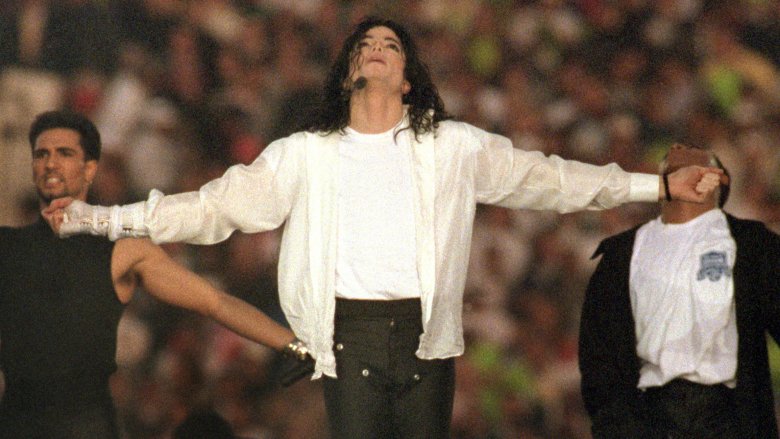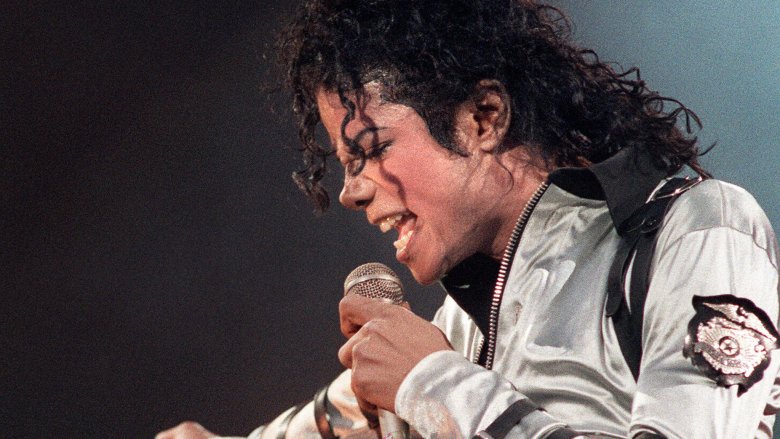Michael Jackson's Tragic Real-Life Story
After parting ways with his brothers and their family band, The Jackson 5, Michael Jackson embarked on an impressive solo career that peaked when his 1982 album, Thriller, became the best-selling album of all time. He declared himself the King of Pop, and through the decades, he continued to perform top-grossing concerts, smash music records, and dominate the charts. His sudden and controversial death in 2009 has not dimmed his notoriety.
Despite his success as an international music icon, it was Jackson's private life and odd behavior that frequently made headlines. There were rumors and allegations about Jackson suffering emotional and physical abuse as a child, and he also became embroiled in a child molestation lawsuit that cast him as the perpetrator. The superstar's admitted shyness hindered his personal relationships and left others to seemingly tell his story for him. Though he became one of the most famous celebrities in the world with legions of adoring fans, his life was far from ideal. This is the tragic real-life story of Michael Jackson.
Is this the reason he got numerous nose jobs?
Michael Jackson's appearance drastically changed over the years. He suffered from vitiligo — a skin pigmentation disease that cause areas of the skin to be lighter than others — and he was rumored to have gone under the knife multiple times. At one point, his nose appeared to be "crumbling" after one too many rhinoplasty procedures. The performer admitted to two nose jobs in his 1988 autobiography, Moonwalk (via the Telegraph), but what many people didn't realize was that Jackson may have been undergoing procedures to change his looks after years of being bullied about his appearance.
According to The Washington Post, a 9-year-old Jackson's father and brothers taunted him by giving him the nickname "Big Nose." Is it possible that he turned to cosmetic surgery to erase painful memories of being allegedly tormented by his family? We wouldn't doubt it.
Rumors of child abuse
Prior to his death, Michael Jackson was vocal about his relationship with his father, Joseph Jackson, alleging his dad physically disciplined him and his siblings. "He would throw you and hit you as hard as he can," Michael said (via Today).
Michael's brother, Jermaine Jackson, shed even more light on the alleged child abuse in an interview with ABC News. He recalled hearing Michael screaming as their dad doled out punishment and the conflicted feelings he had about their father's methods. "He wanted to show us, 'I care about you. Even if I have to whip your butt, I care about you,'" Jermaine said.
In 2013, Joseph defended his heavy-handed approach to child rearing during an interview with Piers Morgan Tonight (via CNN): "I had to be like that way because during those times, it was hard, and you have a lot of gangs there, you know, in the area where we were living." Joseph apparently believed his strict disciplinary actions would prevent his kids from partaking in a life of crime. However, while Michael stayed off the streets, it seems to have come at the cost of his mental, physical, and psychological well-being.
He missed out on his childhood
Michael Jackson missed out on his childhood due to work obligations. In an interview with Rabbi Shmuley Boteach, he described how desperately he wanted to play outside like a normal kid, but he was too busy recording music. "I could see the park, right across the street," he said. "But I had to go in the other building and work until late at night making the albums. I sat there looking at the kids with tears running down my face and I would say, 'I am trapped and I have to do this for the rest of my life.'"
This same sentiment has been shared by other child stars. However, Jackson's inability to maintain a sense of normalcy during his childhood reportedly damaged him beyond belief. He told Boteach that he felt "so lonely" at times. With no friends and no one to talk to, he would sit in his room and cry.
He surrounded himself with dummies
It was a well-known fact that Michael Jackson suffered from extreme shyness, but many aren't aware of the unique way in which he reportedly combated this bashfulness as an adult. The singer claimed he was so shy around people that he would surround himself with life-size mannequins because they made him feel like he wasn't entirely alone. "Because I felt I needed people, someone, and I didn't have," he told Rabbi Shmuley Boteach. "I was too shy to be around real people."
The Sun posted photos from inside Jackson's Neverland Ranch that were taken during a 2003 raid following child molestation allegations. The images showed some of the singer's childlike mannequins. The dummies were scattered around a cluttered memorabilia room, lying on top of boxes and sitting on chairs. According to The Sun, they were dressed in "denim jackets and sneakers," and "some of the dolls were positioned as if they were talking to each other."
The sad reason he built Neverland Ranch
Michael Jackson's name has become synonymous with Neverland Ranch — a sprawling, gated compound he purchased in 1988. He had the property redesigned to replicate a fun and exciting wonderland, complete with an amusement park, a zoo, and a movie theater. "Everything that I love is behind those gates. We have elephants, and giraffes, and crocodiles, and every kind of tigers and lions," he said in a 2003 interview with CBS News. When asked why he developed the Peter Pan-inspired compound, Jackson replied: "Because I wanted to have a place that I could create everything that I never had as a child."
Since he was unable to go to Disneyland or any other amusement park without being mobbed by eager fans, Neverland Ranch became a place for the King of Pop to let loose while still remaining secure behind the walls of his compound.
Was his dad emotionally abusive too?
Aside from the alleged physical abuse, Jackson reportedly had to deal with emotional abuse while growing up. For example, in order to teach Jackson and his siblings a lesson about leaving the window open while they were asleep, father Joseph Jackson climbed through an open bedroom window "wearing a fright mask," reported the Daily Mail.
That sounds like a waking nightmare, and yet it's also been reported that Joe remained emotionally distanced from his children. While some fathers dote on their kids — especially if they're essentially bankrolling their lifestyle — a family source told the New York Post that the Jackson children had a complex relationship with with dad, who allegedly didn't even allow them to call him "dad."
"They were ordered to simply call him Joseph," the source said.
Did this terrifying accident spark his alleged addiction?
In 1984, Michael Jackson was filming a Pepsi commercial when tragedy struck. While singing his hit song "Billie Jean" as cameras rolled, a pyrotechnic error caused a massive explosion, catapulting sparks of fire that engulfed Jackson's hair and body. According to the BBC, "three thousand fans" who were on set watched in horror as the accident unfolded. Somehow, Jackson was able to remain calm during the ordeal and "covered his burning hair with his jacket."
He was treated for second- and third-degree burns to the back of his head and scalp, and some assumed it was this frightful incident and the subsequent attempts to remedy the burn scars that led to the singer's alleged addiction to plastic surgery. It's also been speculated that the incident catalyzed Jackson's alleged addiction to painkillers. It was a lethal cocktail of medication claimed his life many years later.
He was relentlessly called 'Wacko Jacko'
Sure, he was eccentric, flamboyant, and his childlike demeanor was slightly off-putting, but did the public go too far in an attempt to bash Michael Jackson and his lifestyle? Week after week, headlines were dedicated to solely reporting on the strangeness of Jackson's life. Stories were devoted to his oxygen chamber, which he claimed would help him live to see the age of 150. Then there was the horrifying footage of Jackson dangling his son, Prince, over a hotel balcony ledge as screaming fans and paparazzi stood below. He really raised eyebrows when he debuted his beloved sidekick Bubbles – a chimpanzee he'd dress in matching outfits. The culmination of Jackson's unorthodox lifestyle prompted the press to eventually dub him "Wacko Jacko" in honor of his eccentricity.
For his fans, it was troubling to see the talented star mocked and ridiculed, but just imagine how Jackson must have felt as the target of all that ridicule.
Did he have an eating disorder?
Michael Jackson's diet — like just about every other aspect of his life — came under intense scrutiny. Former publicist Kevin McLin claimed rumors about an eating disorder were not true. "He was just careful about what he ate; he just tried to be healthy," McLin told ABC News. "He ate turkey burgers, Chinese food, a lot of vegetables. He always tried to eat healthy stuff...He tried to stay away from red meat."
However, Randy Phillips, the CEO of AEG Live — the company that promoted Jackson's final "This Is It" tour — said he specifically hired someone to "remind [Jackson] to eat." The singer's trainer, Lou Ferrigno, told Good Morning America that Jackson "only ate once a day."
After Jackson's death, an autopsy revealed that he weighed 136 pounds and stood 5'7.5" tall, reported CNN. These stats are considered within a "normal" BMI, but that hasn't stopped the rumor mill from speculating about his supposed issues with food.
He was $400 million in debt
Michael Jackson sold a billion records worldwide, and his concert tickets sold out at lightning speed. So how could the man behind the best-selling album of all time also be in extreme debt? According to Billboard, when Jackson died at the age of 50, he was $400 million in the red. A huge chunk of his fortune was reportedly used to pay multi-million dollar settlements to families whose children accused him of molestation, including a $25 million payout in 1993. Jackson was acquitted of ten felony charges during a 2005 child molestation trial, but the legal proceedings exposed his financial crisis and revealed that his beloved Neverland Ranch was on the brink of foreclosure.
His financial misfortunes eventually turned around — albeit Jackson wouldn't be alive to witness it. Eight years after his death, Forbes listed him as the top-earning dead celebrity of 2017, with earnings reaching $75 million. His estate turned a $500 million profit, thanks to a series of posthumous deals, according to Billboard, including sales from the release of the Michael Jackson's This Is It documentary.
His family calls a 2019 documentary a 'public lynching'
Multiple films have been made about the King of Pop following his death, including the 2018 documentary The Last Days of Michael Jackson. While that project set out to honor Jackson's legacy, a 2019 documentary called Leaving Neverland did the complete opposite. The four-hour film features two familiar faces: James Safechuck and Wade Robson. Safechuck previously came forward with allegations of sexual abuse against Jackson in 2014, reported TMZ. Robson initially defended Jackson during a 2005 child molestation trial, but during a 2016 appearance on Today, Robson changed his tune, calling Jackson "a pedophile and a child sexual abuser" who allegedly molested him for years. We hear from them anew in Leaving Neverland.
According to Variety, Robson and Safechuck allege "with disarming eloquence and self-possession, how Jackson befriended them when they were children and then, for years (starting when they were 7 and 11 years old, respectively), sexually abused them. The film suggests that they were far from the only victims." The documentary premiered at the Sundance Film Festival in January 2019.
Jackson's surviving family members have strongly denounced Leaving Neverland. "Michael always turned the other cheek..." the family said in a statement (via Rolling Stone). "But we can't just stand by while this public lynching goes on, and the vulture tweeters and others who never met Michael go after him. Michael is not here to defend himself, otherwise these allegations would not have been made."

